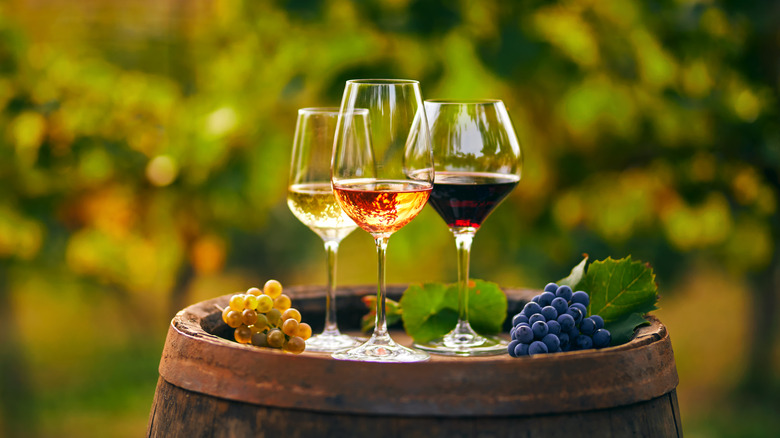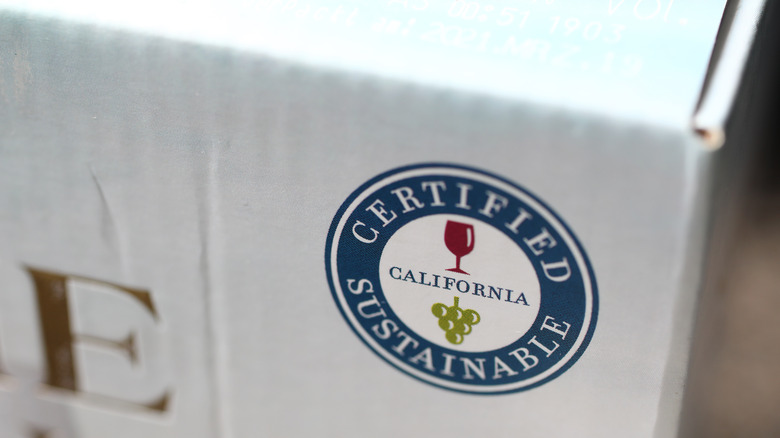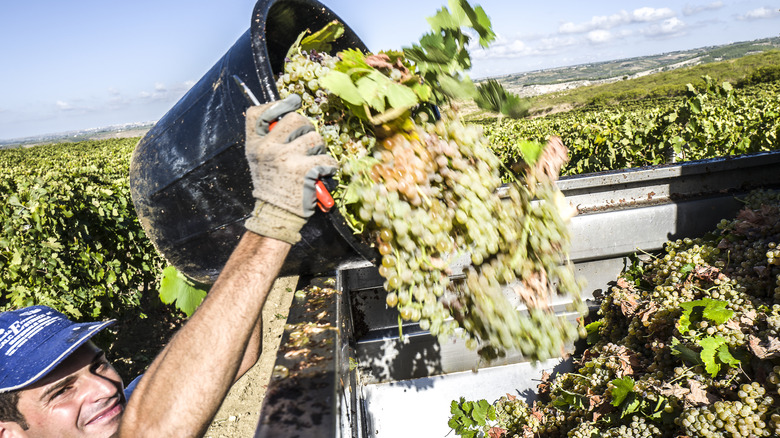What Does 'Sustainable' Really Mean When It Comes To Wine?
Sometimes it feels like you need a degree in wine to completely understand a wine label. And that's partly because transforming grapes from a vineyard into the stuff you pour into your glass is a complicated process, governed not just by regulations (which, of course, vary from country to country and even from state to state in the U.S.) but also by tradition.
Wine is agriculture, science, art, a source of employment, a field of study, a product to be marketed, and not least of all, a beverage to be enjoyed. One wine might be handmade by the very person who pruned the vines, while another wine might come from a big corporation that cares less about quality than quantity.
Understanding what sustainability means when it comes to wine is complicated for a number of reasons. That said, sustainability is also important — to the families who are stewards of the land on which they grow their grapes and to the rest of us who happen to inhabit the same planet and care about what happens to it. In order to understand what sustainable means for wine, we have to unpack some things.
What sustainable means depends on who you ask
In its most general sense, we know what sustainable means. It's taking care of the environment, right? But it can be kind of a nebulous term, perhaps even a marketing term, unless there are certifications behind it. The Wine Economist explains that terms like "organic" are clearly, legally defined, and understood, but when it comes to sustainability, that's not the case, as there are a host of mostly regional organizations that certify for sustainability, with a host of different criteria and standards.
In California alone, there are almost too many sustainability certifications to count. The California Wine Institute details a few of them; there's the California Sustainable Winegrowing Alliance, which administers the California Sustainable Winegrowing Program. There's a certification for Fish Friendly Farming, The California Green Business Network, LODI RULES Sustainable Winegrowing, Napa Green (with programs for vineyards and also for wineries), Sustainability in Practice, Sonoma Sustainable, Land Smart, and the list of certifications and organizations goes on. When you consider the long list of sustainability organizations for a single, albeit important, winemaking state, defining sustainability in a single way that covers the wine industry everywhere is nearly impossible, particularly because each region faces its own environmental challenges, priorities, and regulations.
A winery's physical building may be LEED-certified, for example, which means it meets stringent standards for environmental impacts, but that's only one aspect of winemaking. If a winery treats its agricultural workers poorly, are they really sustainable?
What should sustainability mean?
Wine drinkers who care about the environment may look for natural or organic wines and think their job is done, but Wine Industry Advisor explains how incomplete the organic label can be in terms of looking beyond just the use of pesticides and fertilizer. While those decisions certainly matter, sustainability can and should look deeper, at overall soil health, the effect of packaging and shipping on a winery's carbon footprint, and even social responsibility and how a winery treats the people who work the land and sell the wine.
Currently, a commitment to purchasing wines that are genuinely sustainable requires a little work from consumers. Does the label display sustainability certifications? If so, that's a good sign, but each certification means something different.
Interestingly, SevenFiftyDaily explains that wineries that don't operate sustainably may find it increasingly difficult to stay afloat, as there's an increasing reliance on environmental, social, and governance (ESG) metrics among the financial companies that choose how, when, and where to invest money. Better ESG metrics are good for the environment and also good for business, meaning that wineries and the businesses that invest in them are likely to need to pay more attention to ESGs to secure loans and even gain placements in big retail stores. What's also on the horizon is a move toward a globalization of sustainability standards, which will ultimately make it easier to understand which wines are truly sustainably made and which aren't.


